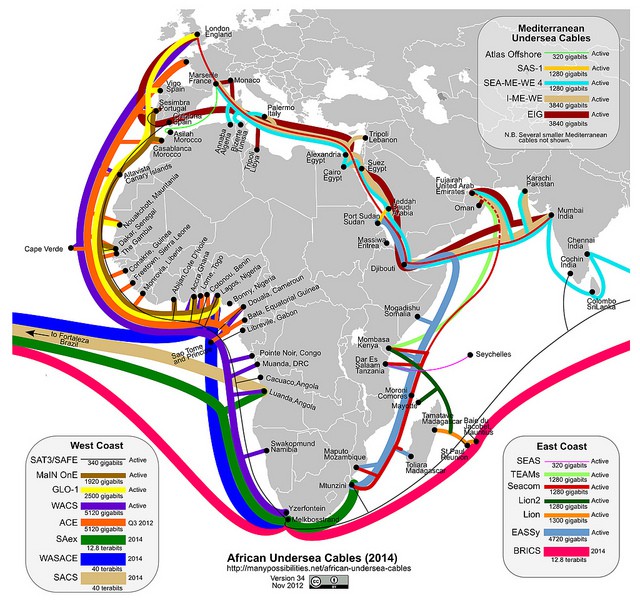
Malone
Dr. John Malone is a force to be reckoned with and the British are about to get an introduction with this morning’s announcement Liberty Global has acquired Virgin Media in a blockbuster $16.3 billion acquisition deal that will make Malone and Liberty one of the biggest broadband providers in the world. (The deal is valued at $23.3 billion after Liberty agrees to take on Virgin Media’s existing debts.)
Malone will take control of Britain’s largest cable operator and will now also control another 18 million broadband customers in Europe, particularly in Germany and Belgium. His biggest rival will be News Corp.’s Rupert Murdoch who controls BSkyB, Britain’s largest multichannel provider.
Malone’s reputation for ruthlessness precedes him. In the early 1990s, then Sen. Al Gore, Jr., called Malone the Darth Vader of the cable industry. Gore also referred to Malone as the head of a mafia-like “cable industry Cosa Nostra” best known for customer abuse, cold-hearted mergers and acquisitions, and endless rate increases. In the 1980s and 1990s, Malone appeared regularly at congressional hearings to discuss cable industry abuses. At the time, Malone was CEO of America’s largest cable operator Tele-Communications, Inc. (TCI). Today, most of those cable systems are known by another name — Comcast.
In the late 1980s, TCI got the ball rolling on massive rate increases for basic cable service. Other operators quickly followed. As rates exploded upwards, the phones began ringing in Washington from outraged constituents. Gore recounted several recent rate hikes in his own home state of Tennessee in one hearing:
- In three years, rates increased 71% in Memphis,
- 99% in Crossville,
- 113% in Nashville,
- 115% in Chattanooga,
- and 116% in Knoxville.
 Under Malone’s leadership, TCI Cable raised rates 60 percent in 1992 alone, helping drive the enactment of the 1992 Cable Act which began to slow the pace of rate hikes. The bill was vetoed by then President George H.W. Bush but overridden in Congress after tens of thousands of constituent complaints poured into Washington. It was sweet justice for many elected officials who were on the receiving end of Malone’s hardball tactics for nearly 20 years. Malone was well known for retaliating against local officials who opposed his unfettered rate increases by suddenly cutting off service to customers and putting up on-screen messages in the place of favorite channels with the names and phone numbers of elected officials Malone claimed were responsible.
Under Malone’s leadership, TCI Cable raised rates 60 percent in 1992 alone, helping drive the enactment of the 1992 Cable Act which began to slow the pace of rate hikes. The bill was vetoed by then President George H.W. Bush but overridden in Congress after tens of thousands of constituent complaints poured into Washington. It was sweet justice for many elected officials who were on the receiving end of Malone’s hardball tactics for nearly 20 years. Malone was well known for retaliating against local officials who opposed his unfettered rate increases by suddenly cutting off service to customers and putting up on-screen messages in the place of favorite channels with the names and phone numbers of elected officials Malone claimed were responsible.
Under Malone’s leadership, city officials and consultants working to bring a competing cable operator into Jefferson City, Mo., got a taste of TCI’s ruthlessness when Paul Alden, TCI’s vice president and national director of franchising personally threatened the mayor and a consultant working on the project.
“We know where you live, where your office is and who you owe money to. We are having your house watched and we are going to use this information to destroy you. You made a big mistake messing with TCI. We are the largest cable company around. We are going to see that you are ruined professionally.” Alden warned.
TCI later also claimed it had a First Amendment right to provide service wherever it wanted, with or without a cable franchise. It also threatened any would-be competitor with ruin. In Jefferson City, that would-be competitor eventually won $35 million in damages in a jury trial over TCI’s tactics.

Malone has made no secret he believes government officials are simply getting in his way. In 1999, The Guardian noted Malone is a big believer in telecom oligopolies:
He is scathing about regulatory attempts to prevent monopolies and mergers. Governments, he says, are “antediluvian” in their approach to the emerging new world economic order. Instead of trying to prevent mergers and collusion between media and communications companies, Malone says governments should actually promote the creation of “super-corporations” (such as his own) with enough capital to exploit the potential of new technology.
Malone has plenty of money to throw around. He engineered the sale of TCI Cable to AT&T and personally earned billions from the transaction. Three years later, AT&T sold those systems to Comcast.
Liberty Global has stayed on the sidelines of the cable business domestically, preferring to invest in cable networks and programming. Malone’s firm owns Starz!, which gave Netflix considerable trouble when the online video service lost the rights to a large number of recent movie titles. Netflix had negotiated a $30 million yearly deal with Liberty in 2008 which expired in early 2012. Renewal talks fell through when Liberty demanded $200 million annually to let Netflix keep streaming its movies.
Consumers in the United Kingdom may experience Dr. Malone’s idea of finesse soon enough, if shareholders and British regulators approve the buyout deal.
[flv width=”384″ height=”236″]http://www.phillipdampier.com/video/BBC News Liberty Global to buy Virgin Media for 23bn 2-6-13.flv[/flv]
BBC News reports the blockbuster deal will pit Dr. John Malone against his biggest rival, Rupert Murdoch. Virgin has five million customers in the UK and provides the country’s fastest broadband service. (2 minutes)


 Subscribe
Subscribe The Vermont Telecommunications Authority (VTA) has announced $1 million in grant funding to defray the costs of providing broadband service to currently unserved homes and businesses around the state.
The Vermont Telecommunications Authority (VTA) has announced $1 million in grant funding to defray the costs of providing broadband service to currently unserved homes and businesses around the state. The Kentucky Resources Council is appealing to Kentucky residents and elected officials to stop AT&T’s plan to abandon rural landline service in the state with the passage of a bill now before Kentucky lawmakers
The Kentucky Resources Council is appealing to Kentucky residents and elected officials to stop AT&T’s plan to abandon rural landline service in the state with the passage of a bill now before Kentucky lawmakers 

